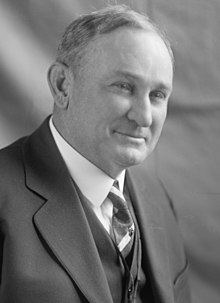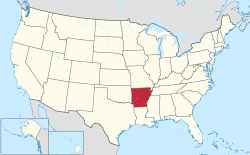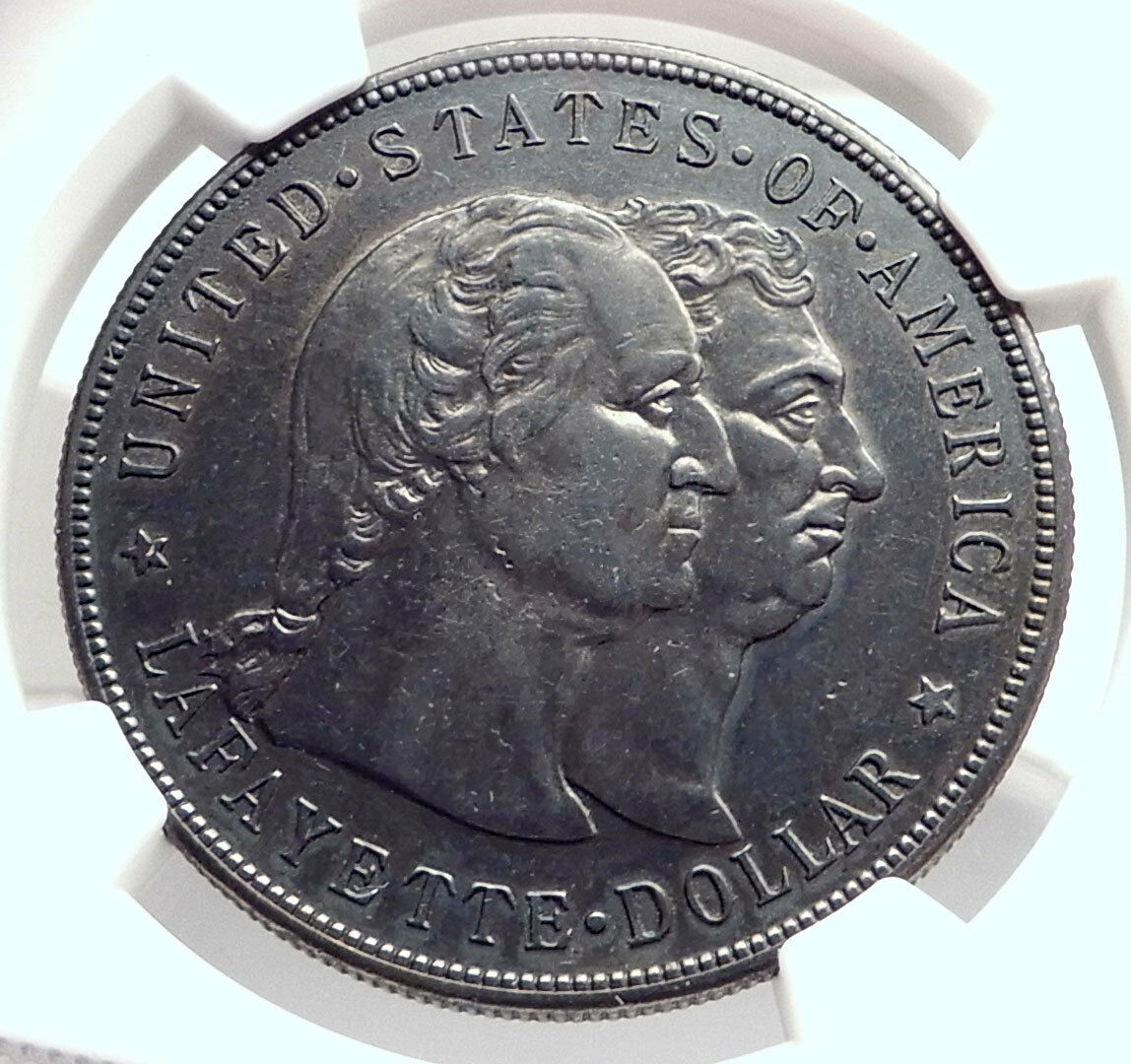|
United States of America – Commemorative Half Dollar
Arkansas Centennial – Robinson
1936 Silver 50 Cents (Half Dollar) 30.6mm (12.50 grams) 0.900 Silver (0.3617 oz. ASW) Philadelphia mint
Reference: KM# 187
Certification: PCGS MS 65 9369.65/36982392 | Mintage: 25,256
ARKANSAS CENTENNIAL 1836-1936 LIBERTY JOSEPH T. ROBINSON, Bust of Senator Joseph T. Robinson.
UNITED STATES OF AMERICA ARKANSAS IN GOD WE TRUST E PLURIBUS UNUM HALF DOLLAR 1936, Eagle with the Arkansas flag in the background.
You are bidding on the exact item pictured, provided with a Certificate of Authenticity and Lifetime Guarantee of Authenticity.
 Joseph Taylor Robinson (August 26, 1872 – July 14, 1937), also known as Joe T. Robinson, was an American politician from Arkansas. A member of the Democratic Party, he served as the 23rd Governor of Arkansas and as the Majority Leader of the United States Senate. He was also the Democratic vice presidential nominee in the 1928 presidential election. Joseph Taylor Robinson (August 26, 1872 – July 14, 1937), also known as Joe T. Robinson, was an American politician from Arkansas. A member of the Democratic Party, he served as the 23rd Governor of Arkansas and as the Majority Leader of the United States Senate. He was also the Democratic vice presidential nominee in the 1928 presidential election.
After studying law at the University of Virginia, Robinson returned to Arkansas, winning election to the Arkansas General Assembly. He won election to the United States House of Representatives, serving from 1903 to 1913. He won election as Governor of Arkansas in 1912, but resigned from that position in 1913 to take a seat in the Senate. In the Senate, Robinson established himself as a progressive and strong supporter of President Woodrow Wilson. Robinson served as the chairman of the 1920 Democratic National Convention and won election as the Senate Minority Leader in 1923. He sought the Democratic presidential nomination in the 1924 election and was nominated as the Democratic vice presidential nominee in 1928. The Democratic ticket of Al Smith and Robinson lost in a landslide to the Republican ticket of Herbert Hoover and Charles Curtis.
The Democrats took control of the Senate after the 1932 Senate elections and elected Robinson as Senate Majority Leader. He passed Franklin D. Roosevelt’s New Deal programs through the Senate, alienating some of his colleagues with his autocratic style. In the midst of debate over the Judicial Procedures Reform Bill of 1937, Robinson died of heart failure.
 Arkansas is a state in the southern region of the United States, home to over 3 million people as of 2018. Its name is of Siouan derivation from the language of the Osage denoting their related kin, the Quapaw Indians. The state’s diverse geography ranges from the mountainous regions of the Ozark and the Ouachita Mountains, which make up the U.S. Interior Highlands, to the densely forested land in the south known as the Arkansas Timberlands, to the eastern lowlands along the Mississippi River and the Arkansas Delta. Arkansas is a state in the southern region of the United States, home to over 3 million people as of 2018. Its name is of Siouan derivation from the language of the Osage denoting their related kin, the Quapaw Indians. The state’s diverse geography ranges from the mountainous regions of the Ozark and the Ouachita Mountains, which make up the U.S. Interior Highlands, to the densely forested land in the south known as the Arkansas Timberlands, to the eastern lowlands along the Mississippi River and the Arkansas Delta.
Arkansas is the 29th largest by area and the 33rd most populous of the 50 United States. The capital and most populous city is Little Rock, located in the central portion of the state, a hub for transportation, business, culture, and government. The northwestern corner of the state, such as the Fayetteville-Springdale-Rogers Metropolitan Area and Fort Smith metropolitan area, is a population, education, and economic center. The largest city in the state’s eastern part is Jonesboro. The largest city in the state’s southeastern part is Pine Bluff.

The Territory of Arkansas was admitted to the Union as the 25th state on June 15, 1836. In 1861, Arkansas withdrew from the United States and joined the Confederate States of America during the Civil War. On returning to the Union in 1868, the state continued to suffer due to its earlier reliance on slavery and the plantation economy, causing the state to fall behind economically and socially. White rural interests continued to dominate the state’s politics until the civil rights movement. Arkansas began to diversify its economy following World War II and relies on its service industry, aircraft, poultry, steel, tourism, cotton, and rice.
The culture of Arkansas is observable in museums, theaters, novels, television shows, restaurants, and athletic venues across the state. Arkansas’s enduring image has earned the state “a special place in the American consciousness”. People such as politician and educational advocate William Fulbright; former President Bill Clinton who served as the 40th and 42nd Governor of Arkansas; his wife, former Secretary of State Hillary Rodham Clinton; former NATO Supreme Allied Commander General Wesley Clark, Walmart magnate Sam Walton; singer-songwriters Johnny Cash, Charlie Rich, and Glen Campbell; the poet C. D. Wright; and physicist William L. McMillan, who was a pioneer in superconductor research; have all lived in Arkansas.
|









 Joseph Taylor Robinson (August 26, 1872 – July 14, 1937), also known as Joe T. Robinson, was an American politician from Arkansas. A member of the Democratic Party, he served as the 23rd Governor of Arkansas and as the Majority Leader of the United States Senate. He was also the Democratic vice presidential nominee in the 1928 presidential election.
Joseph Taylor Robinson (August 26, 1872 – July 14, 1937), also known as Joe T. Robinson, was an American politician from Arkansas. A member of the Democratic Party, he served as the 23rd Governor of Arkansas and as the Majority Leader of the United States Senate. He was also the Democratic vice presidential nominee in the 1928 presidential election.  Arkansas is a state in the southern region of the United States, home to over 3 million people as of 2018. Its name is of Siouan derivation from the language of the Osage denoting their related kin, the Quapaw Indians. The state’s diverse geography ranges from the mountainous regions of the Ozark and the Ouachita Mountains, which make up the U.S. Interior Highlands, to the densely forested land in the south known as the Arkansas Timberlands, to the eastern lowlands along the Mississippi River and the Arkansas Delta.
Arkansas is a state in the southern region of the United States, home to over 3 million people as of 2018. Its name is of Siouan derivation from the language of the Osage denoting their related kin, the Quapaw Indians. The state’s diverse geography ranges from the mountainous regions of the Ozark and the Ouachita Mountains, which make up the U.S. Interior Highlands, to the densely forested land in the south known as the Arkansas Timberlands, to the eastern lowlands along the Mississippi River and the Arkansas Delta. 





